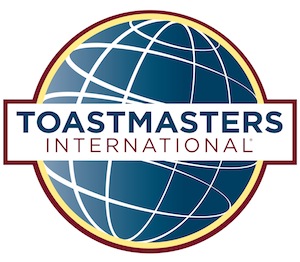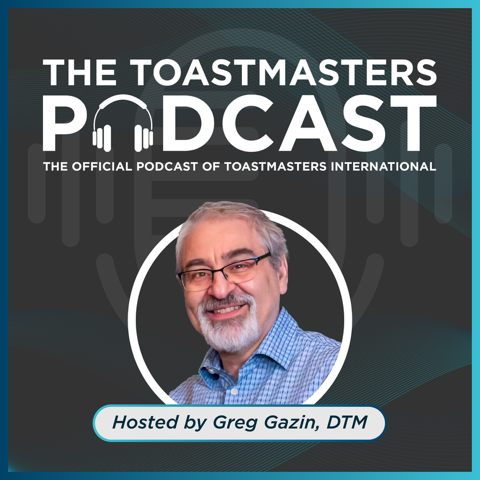Main Menu
- Home
- Meeting Information / Directions
- Contact Us
- Meet Our Members
- Club Calendar
- Public Downloads
- Free Resources
- Toastmasters Video
- Additional Information
- Catalyst for Success
- Club News
- Frequently Asked Questions
- VIDEOS - Recent Speeches
- What to Expect
For more information on Toastmasters International, visit www.toastmasters.org
Meeting Information / Directions
Meet Some of Our Members
Here is a list of some of our members who have chosen to make their profiles public.
What to Expect
Clifton Park Speakers Membership Information
About Toast Masters International
Membership into Toastmasters
Membership is open to all people over the age of 18 wishing to improve their communications skills. In certain rare cases, where previous link to TI can be found, people under 18 are allowed to participate, even though he or she is not allowed to join officially until his or her 18th birthday. Any speeches towards an official award completed before his or her 18th birthday, nevertheless, are accepted retroactively.
TI has a policy of non-discrimination (including based on ethnicity, nationality, and gender). Although TI was initially formed as a male-only organization, membership was opened to women in August 1973. Certain clubs (referred to as a "Closed Club" or "In-house Club") organized within businesses restrict membership to people in the organization; this is the only restriction on membership permitted by the international organization.
The Educational Program
A Toastmasters club is a "learn-by-doing" workshop. A typical club has 20 to 40 members, who meet weekly or biweekly for an hour or two to learn and practice public speaking techniques.
The Toastmasters Competent Communicator and Competent Leadership Manuals are the heart of the TI educational program. These manuals were last updated in 2006 when the single Commmunication and Leadership Manual was split into two manuals. The Competent Communicator Manual consists of ten speech projects, each building upon the other in skills and difficulty. For each project, the member will prepare and deliver a speech in front of the group. After the member has given the presentation, it will be evaluated by another Toastmaster. This near-immediate feedback provides the member information on how he or she can improve his or her presentation skills for the next speech. Upon completion of the Competent Communicator Manual, a Toastmaster is entitled to the designation Competent Communicator, and may add the initials CC to his or her name. Previously a similar designation was called Competent Toastmaster and the abbreviation used was CTM. The Competent Leadership Manual is used in a similar fashion. The member works through ten leadership projects, working on leadership skills such as giving feedback, critical thinking, team building and others. Most of these leadership projects consist of multiple assignments accomplished at meetings over a period of time.
When giving a speech at Toastmasters meetings, a member is expected to speak within a prescribed time limit. For most basic manual speeches, this limit is 5 to 7 minutes. For advanced program speeches, the limit can vary, with the maximum usually at 10 minutes; some of the advanced speech projects can be up to 30 minutes. There are often Question and Answers sessions involved for some of the advanced manuals. At the conclusion of the speeches, other members will evaluate the speeches. The intent is to provide a positive experience for the speaker, encouraging him or her to build on the skills already learned and to improve other speaking and listening skills. This also creates opportunity for members to provide constructive feedback to help one another improve. In addition to providing the speaker with feedback the evaluator learns important skills in quickly preparing a presentation and listening skills. One thing to note is that the evaluators evaluate the speech and not the speaker. This is a subtle but important difference.
The distinctive feature of Toastmasters is the continual evaluation. Each activity at a club is evaluated: speeches are evaluated both orally at the meeting and in the member's manual. In some clubs, even the evaluators are themselves evaluated at the end of the meeting by a "General Evaluator", also a club member.
What Happens at the meetings
Every Toastmaster club meets on a regular basis, at least 12 times a year. Each club meets for an hour, sometimes up to two hours, depending on the club. Each meeting has a structured format, with various members participating in the different roles in the meetings. The meeting is run by a Toastmaster Of the Day (TMOD). There are three basic parts to the Toastmaster meeting: the prepared speeches, Table Topics, and Evaluations. In the prepared speaking portion of the meeting, two, three, or sometimes even four Toastmasters will give a prepared presentation or speech in front of the group. Each speech will meet the requirements of one of the projects in either the basic manual or advanced manuals. Table Topics is extemporaneous speaking where the speaker speaks "off the cuff"; that is, the speaker responds to a question or topic that is not known beforehand. The Table Topic Master presents the topic, calls on an individual, and then that individual has 1 to 2 minutes to respond.
The evaluation session is where feedback is provided, not just to the speakers, but to all members. The evaluation session is headed by a General or Master Evaluator, who calls on individual speech evaluators to give a 2- to 3-minute evaluation of an earlier presentation. After the evaluators have finished giving their evaluations, the General Evaluator calls for the helper reports. There is a Grammarian who notes mispronunciations and mistakes in grammar, or word repeats (e.g. "I did ... I did"), sometimes called "double clutching." An Ah Counter keeps track of audible pauses such as "ah," "er," "um," "well," and "you know"; and a Timer reports how much time each speaker, table topics responder, and evaluator took to give his or her presentation. Then the General Evaluator gives his or her overall evaluation of the meeting and makes recommendations of ways to improve future meetings. A few clubs have Table Topics Evaluators who evaluate members' responses to the table topics; for those that do not, the General Evaluator frequently fills that role. In addition, some advanced clubs have a 'round robin' evaluation for the speakers. After the evaluator gives an evaluation recorded in the member's manual, the other members around the room are asked for additional comments on the presentation.
There are sometimes other roles in the program, depending on the club. For example, there may be an Invocator who gives an invocation or inspirational opener; a HumorMaster, Joke Master, or Raconteur who tells a funny story or jokes; a Wordmaster or Lexicologist who presents a "word of the day" to help the members increase their vocabulary (with the intention that members use the word of the day in their presentations); a Listener who asks questions after the presentations to make sure everyone was listening; and/or an Award Presenter, who presents awards at the end of the meeting. Some clubs also have an Educational Presentation in which a speaker presents an educational aspect of Toastmasters. In many clubs, members vote for the Best Speaker, Best Table Topics Speaker, and Best Evaluator of the meeting. This "Best [whatever]" usually gets a ribbon to keep or a travelling trophy to take with him or her until the next meeting, when he or she will have to present it to the next winner.
Toastmasters International Contests
Toastmasters International holds contests twice a year. These allow members to practice their communications skills under demanding conditions, view the efforts of skilled members of other clubs, and provide entertainment during business meetings or dinner functions. There are five different types of contests that can be held: Humorous Speech Contest, Table Topics Contest, Tall Tales Contest, Evaluation Contest, and the International Speech Contest. Each club conducts these contests. The winner of each club contest goes to an Area Contest; the winner of the Area Contest goes on to the Division Contest; the winner of the Division Contest goes on to the District Contest. Most contests stop at the District level; the one exception is the International Speech Contest.
The "International Speech Contest," (sometimes erroneously called the "Serious Speech Contest" or the "Motivational Speech Contest" to distinguish it from the "Humorous Speech Contest") selects a single winner for the entire worldwide membership of Toastmasters. Winners of this contest are crowned the "World Champion of Public Speaking" at the annual International Conference.
In the International Speech Contest, the contestant selects the subject and type of speech to give and is judged on the overall presentation using a point system for various categories of skills. In a Humorous Speech Contest the speeches are judged using a different set of categories that includes how well humor was used. In a Tall Tales Contest, judging is based on speaking skills and use of exaggeration for humorous effect. In an Evaluation Contest, a model speaker (sometimes called a test speaker or a target speaker) gives a speech, and then all of the contestants evaluate the same speech. In the Table Topics Contest, each contestant is led into the room one at a time and presented with a question they have not previously been informed of and are judged on how well they respond; each contestant is given the same question.
Downloads
| Type | File Name / Description | Size |
|---|
UNSUBSCRIBED
Thank you for your request to be removed from our mailing list. We are sorry to see you go.
Please contact a club officer or the website administrator if you change your mind.





